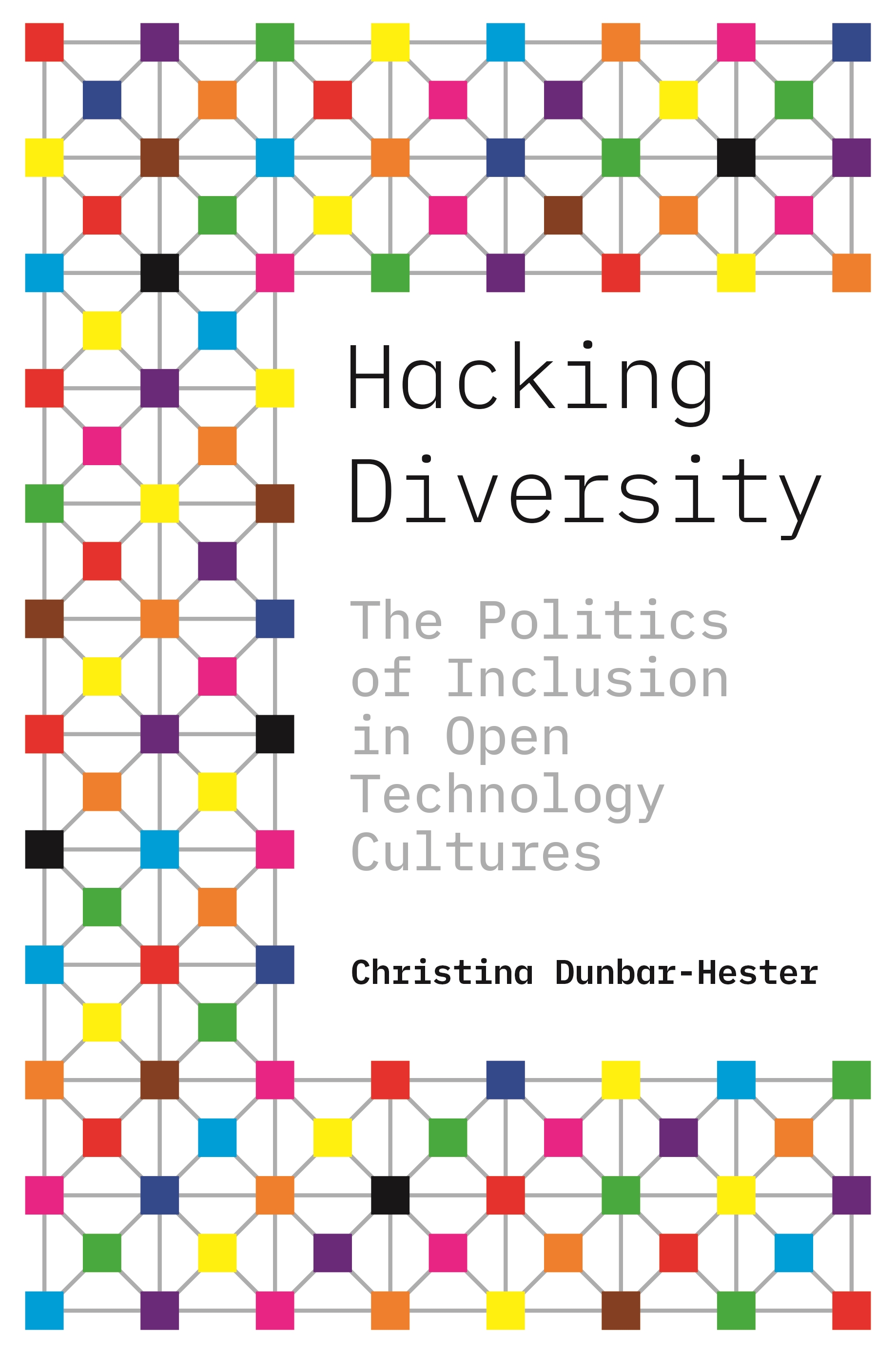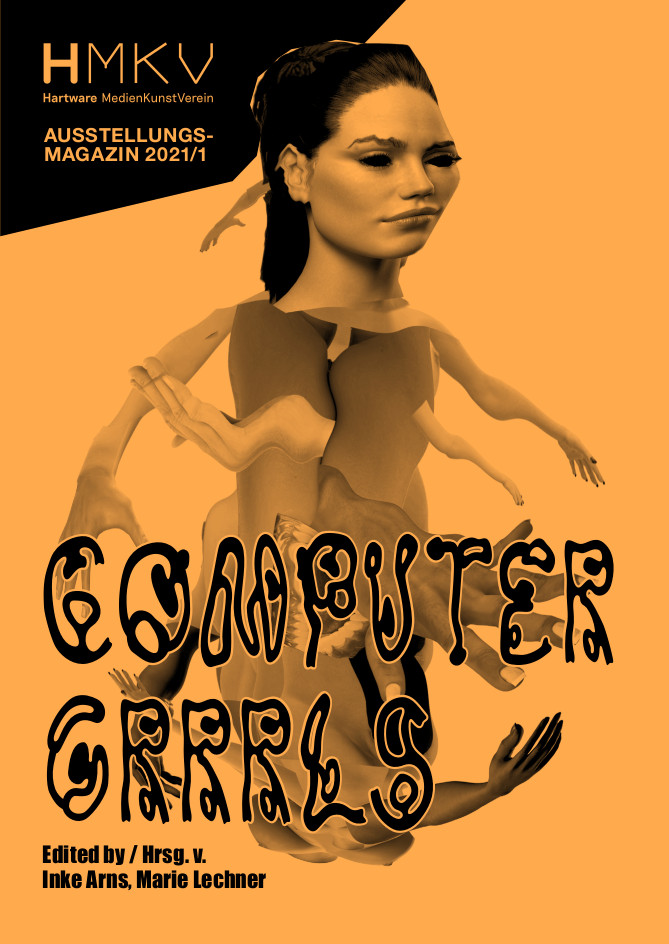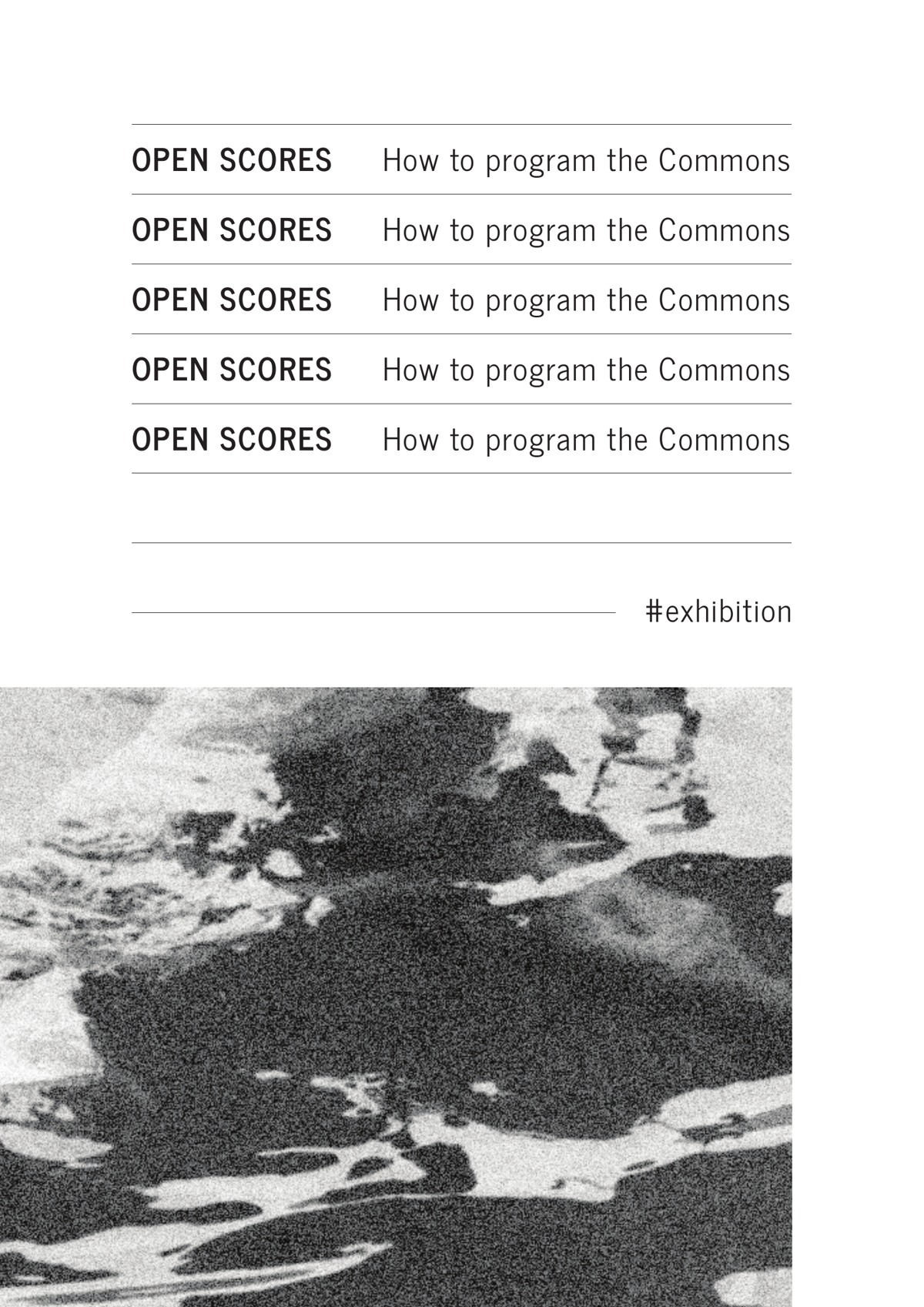Christina Dunbar-Hester: Hacking Diversity: The Politics of Inclusion in Open Technology Cultures (2020)
Filed under book | Tags: · care, community, computing, diversity, diy, ethnicity, feminism, floss, gender, hacker culture, hackerspace, hacking, identity, open source, openness, participation, politics, queer, race, technology, women

“A firsthand look at efforts to improve diversity in software and hackerspace communities.
Hacking, as a mode of technical and cultural production, is commonly celebrated for its extraordinary freedoms of creation and circulation. Yet surprisingly few women participate in it: rates of involvement by technologically skilled women are drastically lower in hacking communities than in industry and academia. Hacking Diversity investigates the activists engaged in free and open-source software to understand why, despite their efforts, they fail to achieve the diversity that their ideals support.
Christina Dunbar-Hester shows that within this well-meaning volunteer world, beyond the sway of human resource departments and equal opportunity legislation, members of underrepresented groups face unique challenges. She brings together more than five years of firsthand research: attending software conferences and training events, working on message boards and listservs, and frequenting North American hackerspaces. She explores who participates in voluntaristic technology cultures, to what ends, and with what consequences. Digging deep into the fundamental assumptions underpinning STEM-oriented societies, Dunbar-Hester demonstrates that while the preferred solutions of tech enthusiasts—their “hacks” of projects and cultures—can ameliorate some of the “bugs” within their own communities, these methods come up short for issues of unequal social and economic power. Distributing “diversity” in technical production is not equal to generating justice.
Hacking Diversity reframes questions of diversity advocacy to consider what interventions might appropriately broaden inclusion and participation in the hacking world and beyond.”
Publisher Princeton University Press, 2020
Princeton Studies in Culture and Technology series
ISBN 9780691182070, 0691182078
xi+271 pages
Reviews: Jenna P. Carpenter (Tech & Society, 2021), Rebecca Ortenberg (Lady Science, 2020), Samantha Shorey (International Journal of Communication, 2020).
EPUB (updated on 2022-8-29)
PDF (added on 2022-12-12)
Inke Arns, Marie Lechner (eds.): Computer Grrrls (2021) [German/English]
Filed under catalogue | Tags: · algorithm, artificial intelligence, big data, cyberfeminism, hacking, internet, technofeminism, technology, women

“Computer Grrrls brings together 23 international artistic positions that negotiate the complex relationship between gender and technology in past and present. The book deals with the link between women and technology from the first human computers to the current revival of technofeminist movements. An illustrated timeline with over 200 entries covers these developments from the 18th century to the present day.
The publication presents artists, hackers, makers and researchers who are working on how to think differently about technology: by questioning the gender bias in big data and artificial intelligence, promoting an open and diversified Internet, and designing utopian technologies.
The perspectives presented here address a broad range of topics: electronic colonialism, the place of minorities on the Internet, the sexist bias of algorithms, the dangerous dominance of white men in the development of artificial intelligence and digital surveillance, but also ideas on how we can change our traditional ways of thinking.
Artists included: Morehshin Allahyari, Manetta Berends, Zach Blas & Jemima Wyman, Nadja Buttendorf, Elisabeth Caravella, Jennifer Chan, Aleksandra Domanović, Louise Drulhe, Elisa Giardina Papa, Darsha Hewitt, Lauren Huret, Hyphen-Labs, Dasha Ilina, Roberte la Rousse, Mary Maggic, Caroline Martel, Lauren Moffatt, Simone C. Niquille, Jenny Odell, Tabita Rezaire, Erica Scourti, Suzanne Treister, Lu Yang.”
Publisher Kettler, Dortmund, and HMKV, Dortmund, May 2021
Open access
ISSN 2629-2629
ISBN 9783862069071
191 pages
HT coco
Publisher
Publisher
Exhibition (HMKV, 2018-2019)
PDF (59 MB)
Comment (0)Open Scores: How to Program the Commons (2020)
Filed under catalogue | Tags: · archive, collaboration, commons, digital culture, digital library, education, feminism, hacking, knowledge, notation, postdigital, privacy, shadow library

“The exhibition OPEN SCORES brought together a series of practices through which artists articulate their specific forms of digital commons. From online archives, to digital tools/infrastructure and educational formats, the projects envision a (post-)digital culture in which notions of collaboration, free access to knowledge, sustainable use of shared resources and data privacy are central. For the exhibition, each of the projects created a unique score to present their practice.”
Participants: Dušan Barok (monoskop.org), Marcell Mars & Tomislav Medak (memoryoftheworld.org), Sebastian Lütgert & Jan Gerber (0xdb.org), Kenneth Goldsmith (ubu.com), Sean Dockray (AAAAARG), Zeljko Blace (#QUEERingNETWORKing), Ruth Catlow & Marc Garrett (furtherfield.org), Laurence Rassel (erg.be), Marek Tuszynski (Tactical Tech), Michael Murtaugh, Femke Snelting & Peter Westenberg (Constant), Stefanie Wuschitz (Mz* Baltazar’s Lab), Panayotis Antoniadis (nethood.org), Alessandro Ludovico (neural.it), Eva Weinmayr (andpublishing.org), spideralex, Sakrowski (curatingyoutube.net), Creating Commons.
Curated by Creating Commons (Shusha Niederberger, Cornelia Sollfrank, Felix Stalder).
Publisher Creating Commons, Jun 2020
Creative Commons BY-SA 4.0 International License
[40] pages
Project website
Exhibition
Publisher
PDF (40 MB)
See also Aesthetics of the Commons (2021).
Comment (0)
